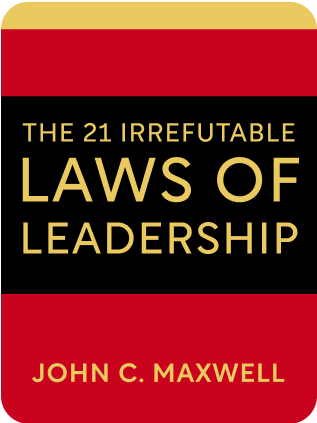

This article is an excerpt from the Shortform book guide to "The 21 Irrefutable Laws Of Leadership" by John C. Maxwell. Shortform has the world's best summaries and analyses of books you should be reading.
Like this article? Sign up for a free trial here .
What is the Law of Priorities? What do priorities mean in the context of leadership?
The Law of Priorities is one of John C. Maxwell’s laws of leadership. As the name suggests, the Law of Priorities is all about having what it takes to put priorities first on the to-do agenda.
Keep reading to learn about John C. Maxwell’s Law of Priorities.
Irrefutable Law #17: The Law of Priorities
Being busy doesn’t necessarily equate to being productive, achieving, or accomplishing. Time is finite, so good leaders regularly evaluate how they’re spending it. They choose to focus on activities that help them achieve their goals, and drop activities that don’t.
Some people are reluctant to apply the Law of Priorities, for a few reasons:
- Belief in the myth that busyness = productivity. If you never have free time, it’s easy to think that you’re using all your time doing important things. However, you need to consider what you’re actually doing, and how it contributes to your overall goals.
- Reluctance to do that hard work of thinking ahead. Prioritizing requires knowing what’s important (and what will be important in the future). It’s hard to constantly keep the big picture in mind.
- Discomfort. Prioritizing usually involves doing the things that you least want to do.
The Pareto Principle (80/20 rule) can help you prioritize. Rank your activities by importance and focus on the top 20%. These top activities will give you 80% of your results, so spend 80% of your time on them. For example, say you have 10 customers. The top 2 will give you 80% of your sales, so spend 80% of your time on them.
Maxwell gives three R’s to keep in mind when prioritizing:
- Requirement. Consider what absolutely needs to be done, and if you personally need to do it. Stop doing things that aren’t necessary, and if something is necessary but you don’t personally need to do it, delegate.
- For example, say you’re making dinner for your family. Eating is necessary for survival, but likely several members of your family could prepare food. You don’t have to be the person to do it.
- Return. Focus on the activities that achieve the greatest results. Since you’re more productive and happy when you’re using your strengths, prioritize tasks that use them.
- If you could delegate a task to someone who could do it 80% as well, give it to them.
- If you don’t have people who can do things 80% as well as you can, then find someone you can train up to this standard.
- Reward. It’s worth spending time on things you love.
- For example, if you love playing golf, you should make time for it no matter how many other things you need to do.
The very best application of this law is to address multiple priorities with a single action. If you can do one action but satisfy several priorities, then you’ll be able to increase your focus without using up any extra time.
Example of a Failed Application of the Law: John C. Maxwell
For many years, John C. Maxwell lived in San Diego. He loved the city and planned to stay there for his entire life. Since his job involved speaking, he had to travel a lot. One day he asked his assistant to calculate how much time he spent on planes, and discovered that he was spending the equivalent of 27 days a year traveling just between San Diego and Dallas (to make connections). He then came up against one of the barriers to prioritizing—doing something he didn’t want to do, which in this case meant moving to a more central city. (He eventually moved to Atlanta.)
Example of a Successful Application of the Law: Jack Welch
When Jack Welch took over General Electric in 1981, it was a good company. The stock was $4 per share and the company was eleventh best on the stock market. But good wasn’t great, and Welch wanted great. Welch reevaluated the company’s priorities and used a version of the 80/20 rule to take the company to the next level.
Until Welch came along, GE included 350 strategic businesses. Welch looked at all of them and asked himself if they could be number 1 or 2 in the world marketplace. Any that couldn’t were closed or divested. Welch used the money he’d made selling the businesses to invest in the ones that remained. By 1989, there were only 14 businesses left—all of which were first or second in the world marketplace. When Welch retired, GE shares were more than $80.

———End of Preview———
Like what you just read? Read the rest of the world's best book summary and analysis of John C. Maxwell's "The 21 Irrefutable Laws Of Leadership" at Shortform .
Here's what you'll find in our full The 21 Irrefutable Laws Of Leadership summary :
- Why working with people is the only way to do meaningful work
- How to become the kind of person that can get things done
- Why you don't need to be good at all the laws of leadership to be a good leader






